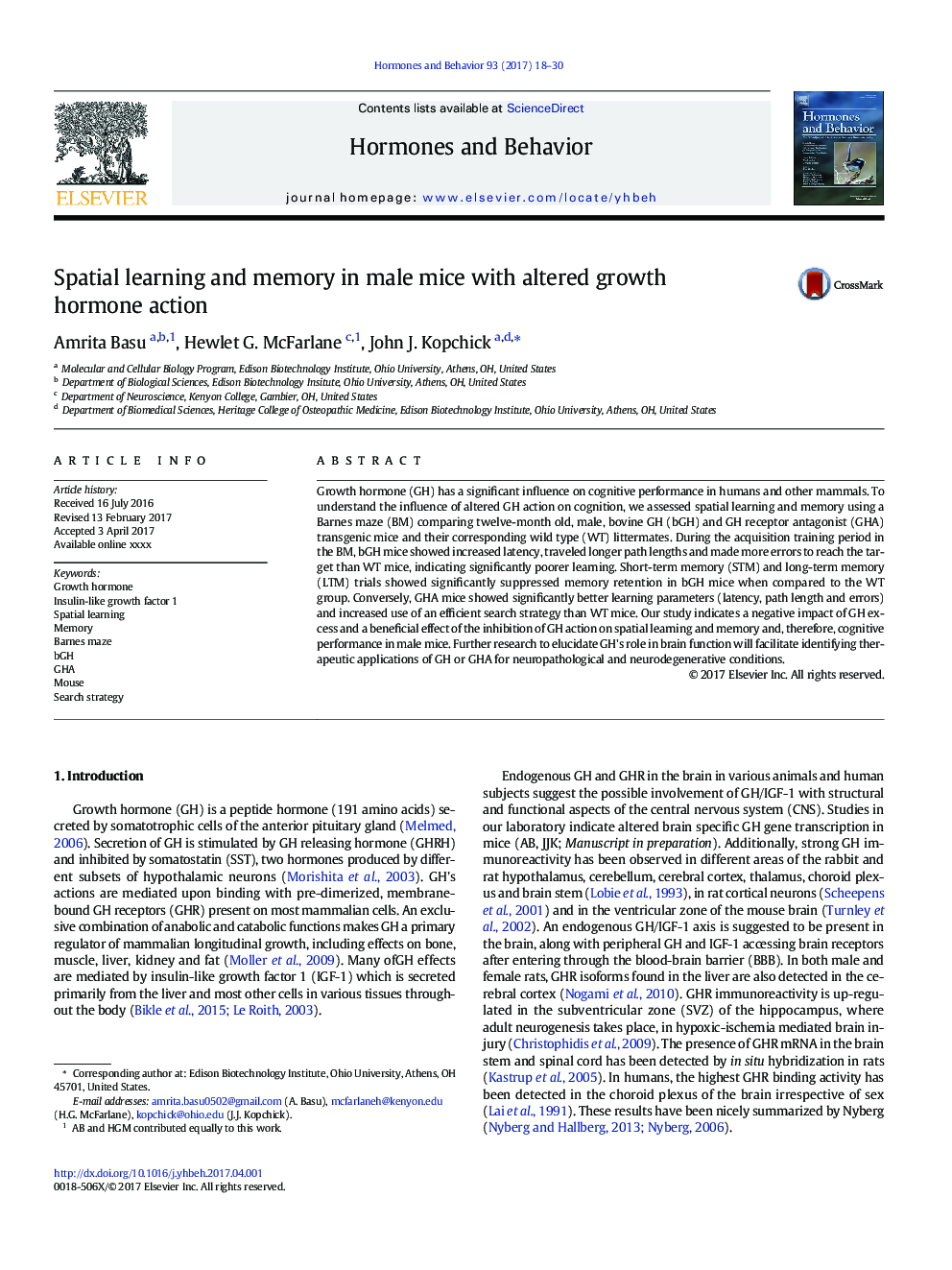| Article ID | Journal | Published Year | Pages | File Type |
|---|---|---|---|---|
| 4931121 | Hormones and Behavior | 2017 | 13 Pages |
Abstract
Growth hormone (GH) has a significant influence on cognitive performance in humans and other mammals. To understand the influence of altered GH action on cognition, we assessed spatial learning and memory using a Barnes maze (BM) comparing twelve-month old, male, bovine GH (bGH) and GH receptor antagonist (GHA) transgenic mice and their corresponding wild type (WT) littermates. During the acquisition training period in the BM, bGH mice showed increased latency, traveled longer path lengths and made more errors to reach the target than WT mice, indicating significantly poorer learning. Short-term memory (STM) and long-term memory (LTM) trials showed significantly suppressed memory retention in bGH mice when compared to the WT group. Conversely, GHA mice showed significantly better learning parameters (latency, path length and errors) and increased use of an efficient search strategy than WT mice. Our study indicates a negative impact of GH excess and a beneficial effect of the inhibition of GH action on spatial learning and memory and, therefore, cognitive performance in male mice. Further research to elucidate GH's role in brain function will facilitate identifying therapeutic applications of GH or GHA for neuropathological and neurodegenerative conditions.
Keywords
Related Topics
Life Sciences
Biochemistry, Genetics and Molecular Biology
Endocrinology
Authors
Amrita Basu, Hewlet G. McFarlane, John J. Kopchick,
